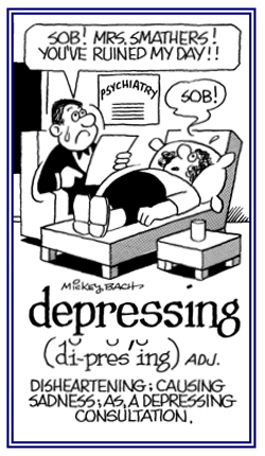press-, presso-, pressi-, -prim-, -prin-
(Latin: push lower, bear down on or against)
1. An application of force in bodily areas used for acupuncture for therapeutic reasons: An alternative medicine technique called acupressure was used by Dr. White in which he used physical pressure on certain parts of the body to treat his patients.
2. In medicine, the compression of a bleeding vessel by inserting needles into adjacent tissue: Dr. Schneider was a specialist in using very thin pins in acupressure to stop the bleeding in Susan's wound directly after her accident.
2. In medicine, the compression of a bleeding vessel by inserting needles into adjacent tissue: Dr. Schneider was a specialist in using very thin pins in acupressure to stop the bleeding in Susan's wound directly after her accident.
Dr. Schneider also found the points on Mary's body for treating the areas with acupressure using his fingers and hand massage.
Someone who applies force to a body area for therapeutic purposes: Dr. Nelson was an acupressurist who was renown for his alternative medical treatment by using physical force on certain body parts of patients to relieve their pains.
An application of strength to a blood vessel to stop bleeding.
A technical drawing with white lines printed on a blue background, or a similarly produced print with blue lines on a white background: Blueprints usually consist of an architectural or engineering design for various constructions.
compress (verb), compresses; compressed; compressing
compressibility
compressible
compressibly
The act or process of applying pressure to make something smaller or to increase its density: When she packed her suitcase, Lucy applied compression to the plastic bags in which she had packed her clothing, squeezing out the air in them and making the pile of clothing in her luggage smaller so it would take up less space.
compressor
decompress, (verb) decompresses; decompressed; decompressing
1. To cause a reduction in the atmospheric pressure of an enclosed space, or to experience such a reduction: The newly invented mini-machine was used to decompress the vacuum tube in the laboratory.
2. To allow a substance to expand to normal dimensions or volume by the removal of pressure, or to undergo this process: When the diver rose to the surface of the sea, he slowly decompressed himself so as not to become ill.
3. To relax or to unwind; especially, after being busy or stressed: After work, Shirley found that a good cup of tea helped her to decompress and to feel at ease.
4. To expand compressed electronic, or computer, data to its normal extent, or to undergo this process: The instructor said that if anyone hits a certain button, he or she will decompress the files in the computer and be able to read them.
2. To allow a substance to expand to normal dimensions or volume by the removal of pressure, or to undergo this process: When the diver rose to the surface of the sea, he slowly decompressed himself so as not to become ill.
3. To relax or to unwind; especially, after being busy or stressed: After work, Shirley found that a good cup of tea helped her to decompress and to feel at ease.
4. To expand compressed electronic, or computer, data to its normal extent, or to undergo this process: The instructor said that if anyone hits a certain button, he or she will decompress the files in the computer and be able to read them.
depressant
depressed (adjective)
depressible
depressing (adjective), more depressing, most depressing
A reference to something that makes a person very unhappy, sad, or disappointed: The thunderstorms are very depressing for some people.

© ALL rights are reserved.
Go to this Word A Day Revisited Index
Karen's friend is an artist who paints the most depressing pictures of modern life.


